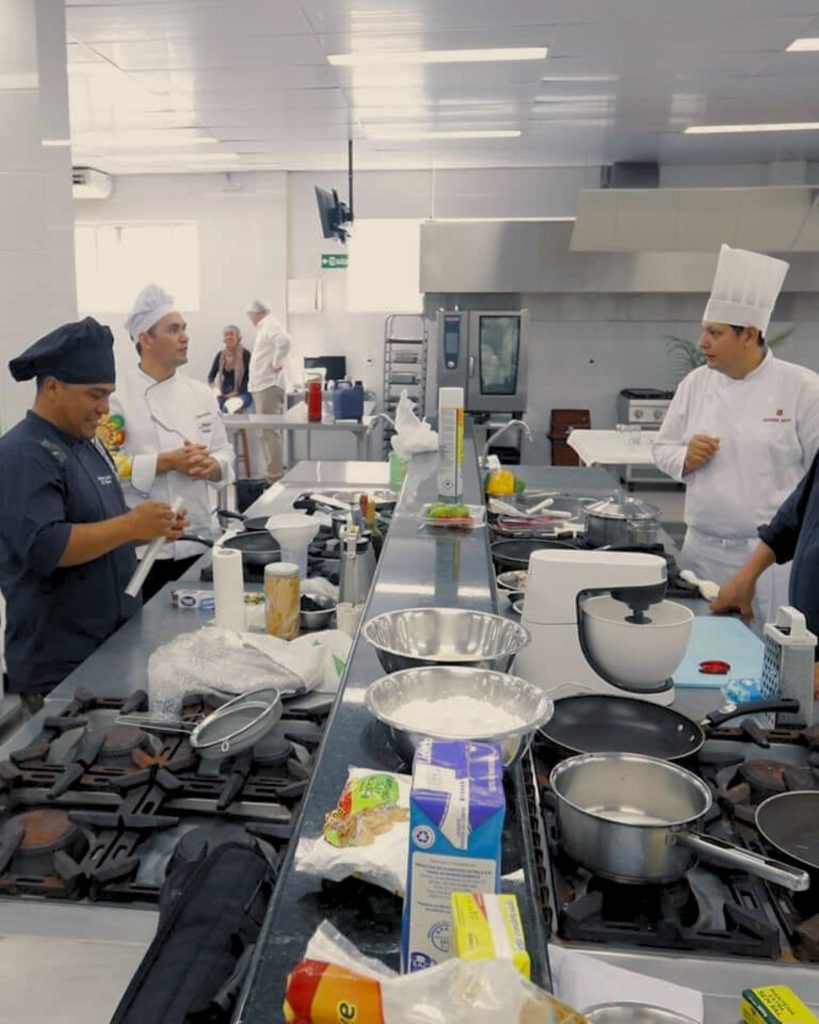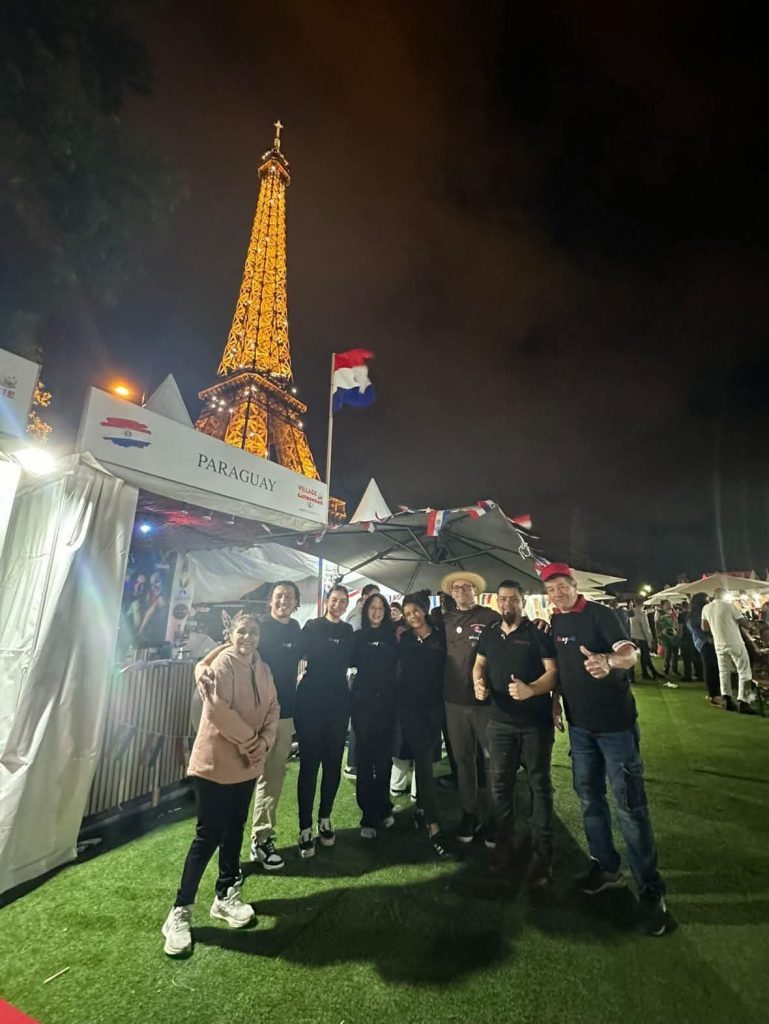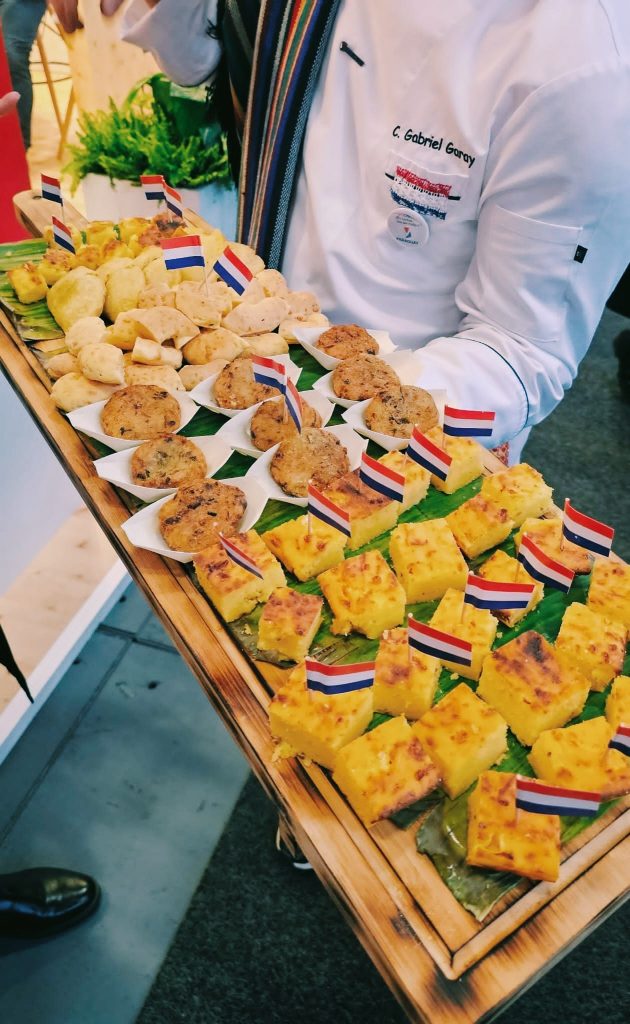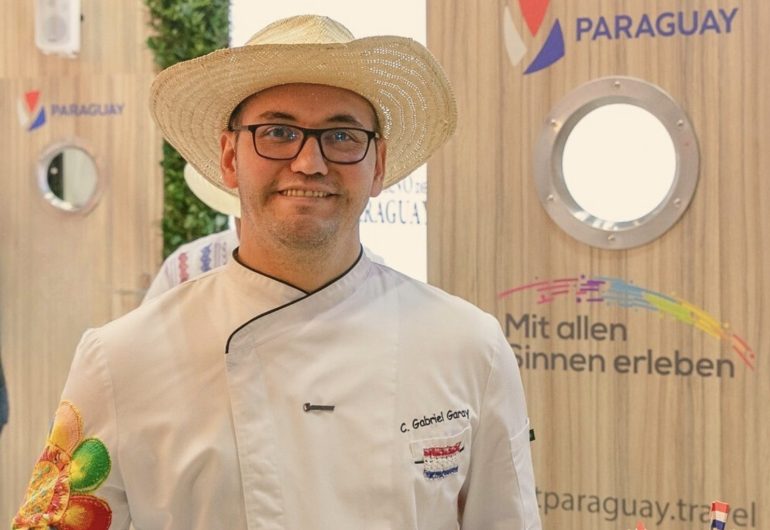When Paraguayan chef Catalino Garay talks about food, he does not just list ingredients or recipes. Garay, who has been living and cooking in Spain and France for almost 25 years, talks about memory, identity, and belonging. For him, Paraguayan cuisine is not just something to be cooked; it is something to be carried, shared, and lived.
“I always try to make every bite feel like a piece of Paraguay,” he explains during his conversation with The Asunción Times from France. “Each dish should be a small journey back home.”
Roots in Paraguay
Garay was born in Caaguazú, a region in the heart of Paraguay. His earliest memories are filled with the aromas of wood-fired kitchens, family gatherings, and dishes prepared with care and tradition. He recalls his mother preparing vori vori with ribs, a dish of dumplings in broth that has remained his favourite ever since.
“I grew up with that aroma,” he mentions. “Every time I prepare it, I want people to feel Paraguay in the flavours.”
As a child, he did not imagine becoming a chef. Cooking was part of family life, a necessity, and a shared act of love. His path would change only years later, far away from home.
A beginning far from the kitchen

In the early 2000s, Garay travelled to Spain to visit his sister. What began as a temporary stay turned into the start of a new life. He took a job washing dishes in a busy Spanish bar, where the constant rhythm of orders and the lively atmosphere of the kitchen caught his attention. Before long, he was invited to take a place at the grill.
“I had already been watching everything,” he remembers. “I knew what came first, what needed to be cut, what needed to be plated., so I learned by observing.”
That moment was a turning point. Cooking, once only part of his childhood home, became his vocation.
Garay spent years working in restaurants across Spain, learning to prepare rice, seafood, and pasta dishes, and absorbing the prestige of Spanish and Italian gastronomy. Yet the more he cooked in European kitchens, the stronger his desire grew to share Paraguayan dishes that few in Spain had ever tasted.
Creating spaces for Paraguayan cuisine

Madrid became the stage for his first initiatives to introduce Paraguay’s culinary heritage abroad. Garay founded the Club de la Cultura y Gastronomía Paraguaya, an organisation dedicated to showcasing Paraguayan food and culture. One of its most celebrated events was The Paraguayan Soup’s Food Tour (La Ruta de la Sopa Paraguaya). He also took part in major international gastronomy events such as FITUR 2025 in Madrid, and the Paris Gastronomy Festival 2025, bringing Paraguayan flavours to global audiences.
Sopa paraguaya is a cornbread made with maize flour, cheese, and onions. When Spaniards first encountered it, they expected a steaming bowl with a spoon. “At first they were confused,” Garay recalls with a smile. “But once they tasted it, curiosity turned into appreciation.”
Through festivals, tastings, and community gatherings, he transformed what was often a hidden corner of Paraguayan immigrant life into an open window for others to discover the richness of his culture. For Garay, these events were not only about feeding people but also about telling a story. “We must explain our food. When people understand the traditions, they value them more.”
Food as cultural diplomacy
For Garay, cooking abroad has always been more than a profession. It is a form of cultural diplomacy. At festivals in Europe, he wears Paraguayan ponchos, uses local crafts to decorate tables, and makes sure to highlight not only flavours but also traditions. “Being an ambassador of Paraguayan gastronomy means showing the world our food and culture with pride.”
Sometimes, this means improvising. When ingredients are hard to find, he brings maize flour or handmade cheese from Spain to recreate flavours that match those of home as closely as possible. Each detail matters because, for him, a plate of vori vori or sopa paraguaya carries more than taste, it carries a sense of place and identity.
Carrying Paraguay abroad

Today, Garay is based in France, where he continues to represent Paraguayan cuisine at international food festivals and cultural events. His menus often feature his favorite dishes from his childhood – sopa paraguaya, vori vori, and other traditional recipes – because they embody the comfort, warmth, and resilience of Paraguayan families.
“When I prepare food abroad, I want people to know Paraguay not just as a small country on the map, but as a place with flavours, with culture, with history.”
His work has made him a familiar face among Paraguayan communities abroad and a respected figure within Latin American gastronomy networks in Europe. For Garay, recognition does not come from awards but from emotion.
“The compliment I treasure most is when Paraguayans abroad tell me that my food takes them back home, reminding them of their families and their mothers’ cooking. In that moment, I know I have truly succeeded,” he says.
Inspiring a new generation of Paraguayan chefs
Garay is also passionate about inspiring young Paraguayan chefs. When asked what advice he would give, he was clear: “If you have a project, carry it forward and do not give up, even though there are many thorns along the way. By overcoming these obstacles, you can achieve great goals.” He emphasises that learning never ends, even for him: “Being an ambassador does not mean I know everything. Every day I keep learning more.”
Garay also encourages chefs to look outward, reminding them that leaving Paraguay often deepens one’s love for its culture and flavours. “When you are abroad, you realise how much more you value your gastronomy, your culture, everything. It is different when you are away—you see it with a bigger perspective.” As he often says, in both Guaraní and Spanish: “Our gastronomy is the only path that takes us back to our place of origin.”
Catalino Garay’s story is not only about a chef’s journey abroad. It is about how food becomes memory, how memory becomes identity, and how identity (served in a plate of vori vori or sopa paraguaya) can connect Paraguay with the world.


